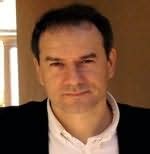A Quote by Glen Duncan
In a fit of pique, I said to my agent, 'I'm going to write something you can sell.' The idea was to write a straight page-turner, with no literary conceits.
Related Quotes
The creation of a film starts with an idea, a notion of a time period or characters, and you get really excited about the idea, and sell it to others if you need their support to write the script. You can't wait to get started, and then you try to start, and you struggle with the blank page, and you get some ideas, and they're bad ideas, and you write bad stuff. It's really bad.
I never had a plan, except to write. I love what I do, and have from the beginning. Loving what you do makes it a lot easier to work, every day, to face the tough spots and heel in for the long haul. Nothing against plans; they work for some people. But for me, if I'd been planning, worrying about numbers, trying to micro-manage my career, I wouldn't have focused on the writing. If you don't write, you're not read. If you're not read, you don't sell. So that's my Master Plan, I guess. Write the books, let the agent agent, the editor edit, the publisher publish.
I find that I end up liking songs if I really have an idea of something I wat to write about-some problem in my life or something I want to work through; if I don't have something like that at the root of the song, then I think I end up not caring about it as much. I gravitate towards some kind of concept or idea or situation that I want to write about. Very often I have to write, rewrite and come at it from an opposite angle...and I end up writing the opposite song that I thought I was going to write.
I'm a storyteller, I'm not a literary writer, and I don't want to be a literary writer. People say to me, "Oh, when are you going to write something different?" What? I don't want to write anything different. I'm writing relationships between people, all different colors, all different sizes, all different sexual orientations, and that's what I want to do.


































